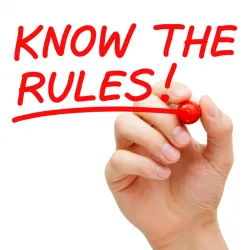These days, great content and images go hand in hand. In fact, image-based social sharing sites like Tumblr and Vine have been gaining ground and as a result Facebook and Twitter have been making their sites more photo-friendly.
This is only a problem when people unknowingly use photos without considering copyright and legal issues. Every blogger is pulling pictures off Pinterest or Google and sharing photos right? Maybe some are, but they’re doing it wrong.
If you are using photos and attributing the artist, that's not always enough. Fully read the copyright and how you are to use it. If you're still unsure, contact the artist for permission.
Were you aware that you can be sued for using a photo without permission?
You could also have your website removed by your hosting provider if you fail to remove images you have not received permission to use. Don’t assume that you can get away with it and no one will ever know. Finding matching images on the web is easier than ever and many artist are going to great measures to protect their work.
Beware! Before you use an image off the internet:
- Assume any image is protected.
- Read the fine print. Many sites claim to be "royalty-free," but still have links to premium stock photography sites that aren't. You could wander into an area you shouldn’t be in if you aren’t careful.
- If you're still not sure if an image is safe or not, find a way to contact the photographer for permission (or use another image).
The worst place you can look for images to use? Google search.
Even though they have the Advanced Search option that allows you to search for sharable content, there may be images that appear that have violated permission rights. Play it safe. Images you pull from Google search could get you in trouble.
Free stock images are available online. Here are a few places to look:
- Creative Commons Licensed Pictures
- Public Domain Images
- Take your own photos!
Stock Images you can purchase are available too!
You can always play it safe and pay for an image through the popular stock photo sites: (i.e. istockphoto, shutterstock, veer, corbisimages, etc.). This way, you can pay your respect to the artist and their fine quality of work and know you are legally allowed to use their creation.
Whichever route you choose to pick your photo, remember that it never hurts to contact the artist/photographer if you are unsure if you may use their work.
When in doubt, leave it out.

